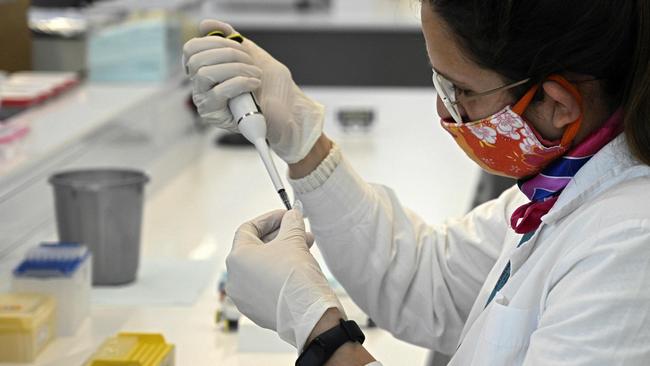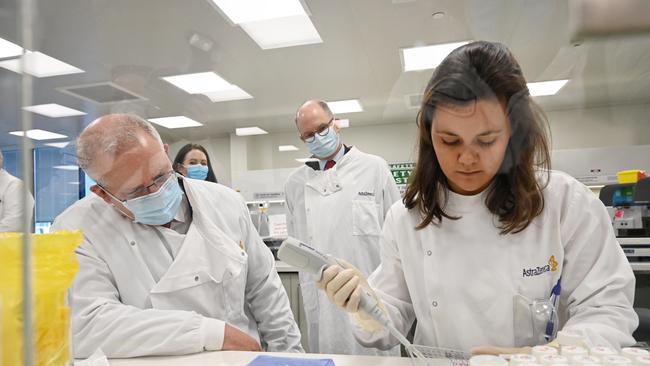Oxford AstraZenica vaccine trial halted after participant suffers adverse reaction
Oxford University hasn’t released details of the adverse event that halted the trial of its promising COVID vaccine. But experts have revealed the possible causes and what the future of the trial holds.
Coronavirus
Don't miss out on the headlines from Coronavirus. Followed categories will be added to My News.
- Poo test picks up COVID cases missed in swabs
- Aged Care Minister censured for ‘failing to recall basic facts’
We ignored scientists when they warned it could take up to ten years to make a safe and successful vaccine against COVID-19 now we’re learning why they were so cautious.
Once a vaccine progresses from early trials to testing in tens of thousands of people it becomes easier to detect adverse reactions in small subsets of the population with particular health conditions or genetic make up.
These are not the only problems that can derail a trial. If a participant has a heart attack or develops an illness or dies researchers have to find out if the vaccine might be the cause.
Sometimes that can take months.
Unlike life saving medications where side effects might be more tolerable than the illness they treat a vaccine is being given to healthy people and we must be sure it will do no harm.
Pharmaceutical companies are under enormous pressure to quickly produce a COVID-19 vaccine because the pandemic is destroying economies and we need one so we can return to normal life.

But a vaccine that doesn’t work or one that produces adverse events would destroy confidence in the health system that’s why it is important to get it right, that’s why major drug companies signed a pact this week to follow strict safety protocols.
There has never yet been a successful vaccine for a coronavirus.
Last time scientists tried to make one against SARS in 2003 animals who caught the virus despite being vaccinated got a worse form of the illness.
In 1976 when a novel swine flu epidemic swept the US the hasty rollout of a vaccine saw around 450 people develop Guillain-Barre syndrome, a rare neurological disorder, after getting the shot.
The Oxford University’s COVID-19 vaccine was the leading candidate, millions of doses had already been manufactured and it was expected to be rolled out to health workers and high risk people from late this year.
The halt on the trial is a major setback.
AstraZeneca and Oxford University have not released details of the adverse event that stopped the trial however the New York Times is reporting one patient on the trial developed transverse myelitis – inflammation of the spinal cord.
The condition damages the material that insulates nerve fibres causing pain, muscle weakness, paralysis, sensory problems, or bladder and bowel dysfunction.
It can be caused by an infection, immune system disorders and multiple sclerosis.

Clinical holds in vaccine trials can be short but in other cases can last for years and in some cases spell the end of development of that particular vaccine, depending on what the investigation reveals.
There were early warning signs of potential problems with the Oxford University’s COVID-19 vaccine when nearly one in five patients developed a fever in early trials, others complained of headaches.
Vaccine experts have told News Corp this rate of fever in trial subjects is higher than normal for a vaccine and could present potential problems.
“The reason we are so concerned about vaccines that cause fevers is that a certain percentage of the population are predisposed to febrile convulsions and these can have serious consequences including brain damage due to lack of oxygen if not promptly treated,” said Flinders University Professor Nikolai Petrovsky.
There are over 165 COVID-19 vaccines in development and the setback underlines the importance of funding a wide array of vaccine technologies.

